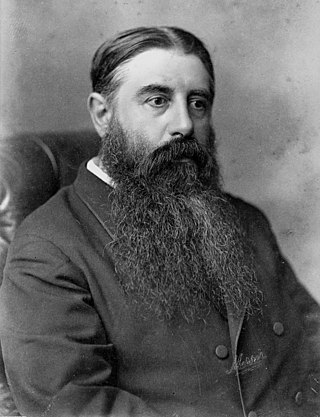Related Research Articles

Leonard Charles Huia Lye was a New Zealand artist known primarily for his experimental films and kinetic sculpture. His films are held in archives including the New Zealand Film Archive, British Film Institute, Museum of Modern Art in New York City, and the Pacific Film Archive at University of California, Berkeley. Lye's sculptures are found in the collections of the Whitney Museum of American Art, the Art Institute of Chicago, the Albright-Knox Art Gallery and the Berkeley Art Museum. Although he became a naturalized citizen of the United States in 1950, much of his work went to New Zealand after his death, where it is housed at the Govett-Brewster Art Gallery in New Plymouth.

Keith Day Pearce Murray was a New-Zealand-born British architect and industrial designer, known for ceramic, silver and glass designs for Wedgwood, Mappin & Webb and Stevens & Williams in the 1930s and 1940s. He is considered to be one of the most influential designers of the Art Deco / Modern age.

Auckland Art Gallery Toi o Tāmaki is the principal public gallery in Auckland, New Zealand. It has the most extensive collection of national and international art in New Zealand and frequently hosts travelling international exhibitions.
The following lists events that happened during 1939 in New Zealand.
The following lists events that happened during 1898 in New Zealand.
The following lists events that happened during 1885 in New Zealand.

George Boyd (1825–1886) was an early New Zealand studio potter.

Mining in New Zealand began when the Māori quarried rock such as argillite in times prior to European colonisation. Mining by Europeans began in the latter half of the 19th century.

The Thames Branch railway line connected Thames, New Zealand, with Hamilton and was originally part of the East Coast Main Trunk railway. Part of the line between Morrinsville and Waitoa remains open and is in use as the Waitoa Branch line, connecting to the Fonterra Dairy Factory at Waitoa.

James McCosh Clark was Mayor of Auckland City in the 1880s. He was a successful businessman until many of his ventures failed during the depression of the 1880s, causing him to return to England for the last decade of his life. He was the son of Archibald Clark.
Alfred Henry Whitehouse was a notable New Zealand motion picture exhibitor and producer. He was born in Birmingham, Warwickshire, England, in 1856.

The Auckland Exhibition, also known as the Auckland Industrial, Agricultural and Mining Exhibition, was held in Auckland Domain, Auckland, New Zealand, in 1913 and 1914.

The New Zealand Industrial Exhibition was an industrial exhibition held in a large Industrial Exhibition Building in Wellington, between Lambton Quay and Stout Street in 1885. Organised by Julius Vogel it was intended to display New Zealand's industries to both encourage foreign investment and to boost New Zealand's self-confidence.

The Domain Wintergardens is a complex of gardens located within the Auckland Domain. It is registered with the Heritage New Zealand as a Category I Historic Place.

Objectspace is a public art gallery in Auckland, New Zealand. It opened in 2004 and is dedicated to the fields of craft, applied arts and design.
William Beattie was a New Zealand photographer. He was best known for his work for the Auckland Weekly News.
Royal Visit of the Duke and Duchess of Cornwall and York to New Zealand was a 1901 New Zealand silent documentary film made by the Limelight Department of the Salvation Army in Australia.
The Departure of the Second Contingent for the Boer War was a 1900 New Zealand documentary silent film.
Maori Scenes were 1898 New Zealand silent documentary films made by Joseph Perry of the Limelight Department of the Salvation Army in Australia. Two or three films were shot about 2 December 1898, just after New Zealand's first film.
References
- 1 2 Sowry, Clive (1993). "Whitehouse, Alfred Henry". Te Ara - the Encyclopedia of New Zealand. Dictionary of New Zealand Biography. Retrieved 13 October 2020.
- ↑ "Auckland Industrial and Mining Exhibition : official handbook and catalogue". Auckland Museum. 1898. Retrieved 22 November 2022.
- 1 2 "First movie shot in New Zealand". New Zealand History. New Zealand Ministry for Culture and Heritage. 1898.